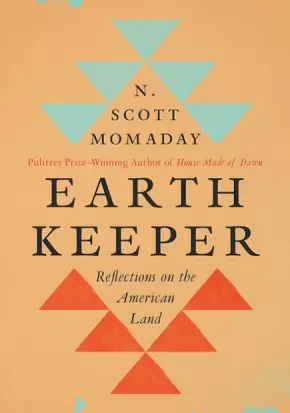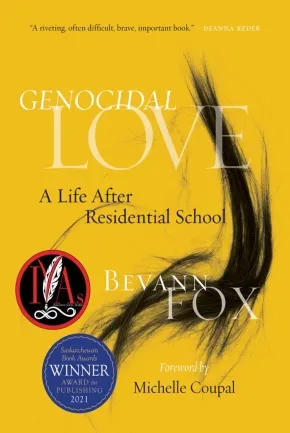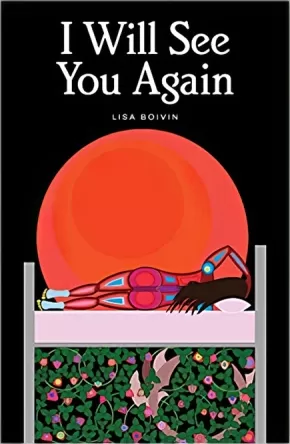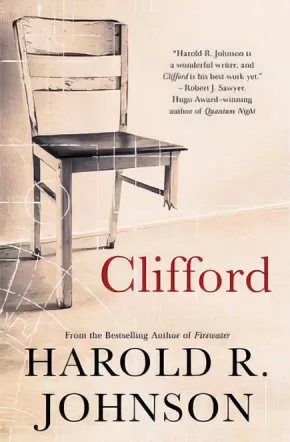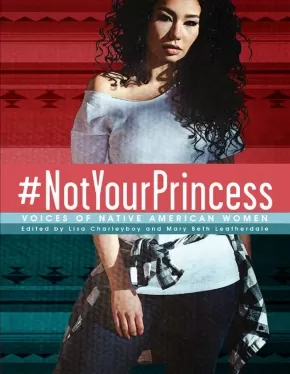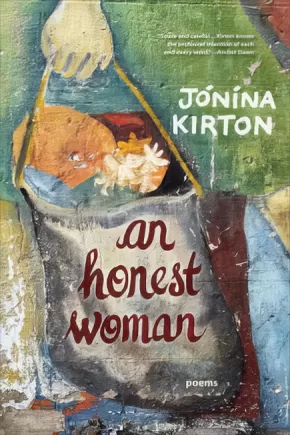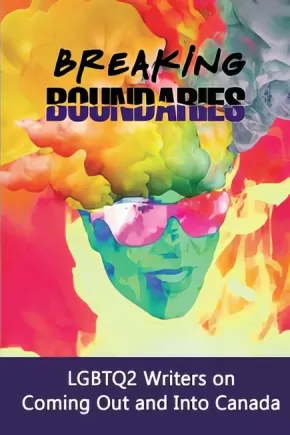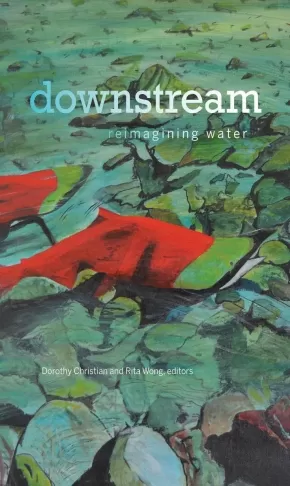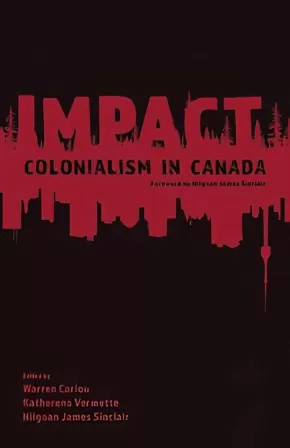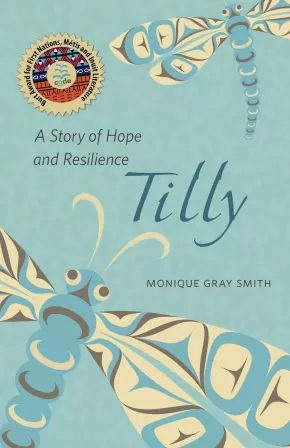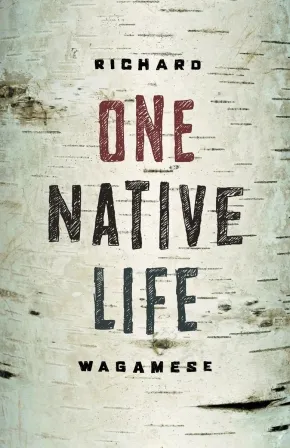
Creative Non-fiction
16
-
26
of
26 Results;
Sort By
Go To
of 2
Earth Keeper: Reflections on the American Land
$21.99
Format:
Hardcover
Text Content Territories:
Indigenous American; Native American; Kiowa;
ISBN / Barcode: 9780063009332
Synopsis:
Synopsis:
A magnificent testament to the earth, from Pulitzer Prize-winning novelist and poet N. Scott Momaday.
One of the most distinguished voices in American letters, N. Scott Momaday has devoted much of his life to celebrating and preserving Native American culture, especially its oral tradition. A member of the Kiowa tribe who was born and grew up on Indian reservations throughout the Southwest, Momaday has an intimate connection to the land he knows well and loves deeply.
In Earth Keeper: Reflections on the American Land, he reflects on his native ground and its influence on his people. “When I think about my life and the lives of my ancestors, I am inevitably led to the conviction that I, and they, belong to the American land. This is a declaration of belonging. And it is an offering to the earth.” he writes.
Momaday recalls stories of his childhood, stories that have been passed down through generations, stories that reveal a profound and sacred connection to the American landscape and a reverence for the natural world.
In this moving and lyrical work, he offers an homage and a warning. Momaday reminds us that the Earth is a sacred place of wonder and beauty; a source of strength and healing that must be protected before it’s too late. As he so eloquently yet simply expresses, we must all be keepers of the Earth.
Reviews
“Poets and storytellers have always reminded us of our spiritual connections to the land and the world around us — passed along through dreams, stories, memories, and mythologies. Scott Momaday skillfully continues this tradition in Earth Keeper, from which we can all learn and benefit.”— Robert Redford
“Earth Keeper is a prayer for continuity in these days of uncertainty. I cannot tell you why I loved this book, I can only tell you I wept my way through it. Each page brought me closer to myself, a self I had lost in the pandemic. We need Scott Momaday's calm, clear prose and stories. Words are medicine. There is wisdom in sharing what one knows, especially at a time when we know so little. ‘Let me say my heart,’ he says. And he does.”— Terry Tempest Williams, author of Erosion: Essays of Undoing
"Dazzling. . . . In glittering prose, Momaday recalls stories passed down through generations, illuminating the earth as a sacrosanct place of wonder and abundance. At once a celebration and a warning, Earth Keeper is an impassioned defense of all that our endangered planet stands to lose."— Esquire
“Wonder abounds in these pages. . . . Short chapters of prose that read almost like prayers to the natural world.”— Kirkus Reviews
“Short but satisfying. . . . Using lyrical, heartfelt language, [Momaday] looks back on a life lived close to nature, and on the joy that natural wonders have given him. . . . At a time when bad news is in plentiful supply, readers will find Momaday’s words refreshing and comforting in their sincerity.”— Publishers Weekly
"A profound reflection on humanity's relationship with its terrestrial home, the planet Earth."— Booklist
“A collection of short essays as multilayered and majestic as the landscape that has been present in everything that Momaday has written. . . . [A] poetic love letter to the Earth.”— Minneapolis Star Tribune
Educator Information
From the Author's Note: "This book is a very personal account, a kind of spiritual autobiography."
Additional Information
80 pages | 5.00" x 7.12"
Genocidal Love: A Life after Residential School
$21.95
Format:
Paperback
Text Content Territories:
Indigenous Canadian; First Nations; Cree (Nehiyawak);
Grade Levels: 12; University/College;
ISBN / Barcode: 9780889777415
Synopsis:
Synopsis:
How can we heal in the face of trauma? How can we transform intergenerational pain into a passion for community and healing?
Presenting herself as “Myrtle,” residential school survivor and Indigenous television personality Bevann Fox explores essential questions by recounting her life through fiction. She shares memories of an early childhood filled with love with her grandparents—until she is sent to residential school at the age of seven. Her horrific experiences of abuse there left her without a voice, timid and nervous, never sure, never trusting, affecting her romantic relationships and family bonds for years to come.
This is the story of Myrtle battling to recover her voice. Genocidal Love is a powerful confirmation of the long-lasting consequences of residential school violence —and a moving story of finding a path towards healing.
Awards
- 2021 Indigenous Voices Awards winner for Published Prose in English: Creative Nonfiction and Life-Writing
Reviews
“A riveting, often difficult, brave, important book. ” —Deanna Reder, Chair, Department of Indigenous Studies, Simon Fraser University
“A riveting and courageous reflection. . . . Genocidal Love is unique in its detailed account of the often re-traumatizing effects of the legal and bureaucratic barriers of compensation programs predating the Truth and Reconciliation Commission. ” —Jesse Rae Archibald-Barber, editor of kisiskâciwan and co-editor of Performing Turtle Island
“Fox tears beauty from the jaws of genocide, daring to claim love beyond settler imaginings—love that nurtures decolonial futures and makes possible a more just world. ”—Sam McKegney, author of Magic Weapons and Masculindians
Educator Information
A forward from Michelle Coupal explains more about "Genocidal Love—a story that Bevann tells about herself outside the boundaries of what constitutes fiction and non-fiction".
Additional Information
256 pages | 5.00" x 7.00"
I Will See You Again
$25.00
Artists:
Format:
Hardcover
Text Content Territories:
Indigenous Canadian; First Nations; Dene; Deninu K’ue ;
ISBN / Barcode: 9781553798552
Synopsis:
Synopsis:
When the author learns of the death of her brother overseas, she embarks on a journey to bring him home. Through memories and dreams of all they shared together and through her Dene traditions, she finds comfort and strength. The lyrical art and story leave readers with a universal message of hope and love.
Educator Information
Recommended for ages 12+ (Mature Picture Book)
In this emotional illustrated picture book, author and illustrator Lisa Boivin tells the story of the loss of her brother and the journey with her Dene traditions to find comfort and the strength to move on from her grief.
This book explores themes of death, memory, remembrance, comfort, and specifically Dene perspectives on death.
The author's deeply personal story is revealed through exquisite artwork and text that are grounded in her family's Dene culture.
Lisa Boivin's experiences as an artist and bioethicist inform her story, expressed in the Indigenous way of passing knowledge through images.
Additional Information
56 pages | 6.50" x 10.00" | Colour illustrations throughout
Clifford: A Memoir, A Fiction, A Fantasy, A Thought Experiment
$22.95
Format:
Paperback
Text Content Territories:
Indigenous Canadian; First Nations; Cree (Nehiyawak);
Grade Levels: 12; University/College;
ISBN / Barcode: 9781487004101
Synopsis:
Synopsis:
I open my eyes in the darkness, laying on my side, half my vision is of the earth and shadows; the other is of the sky, treetops, and stars. I should write Clifford’s story. The thought emerges fully formed . . . The thought dissipates. I close my eyes and the earth and the sky disappear. The warmth of my sleeping bag wraps around me and sleep pulls me under into that half-world where reality and fantasy mingle in a place where coherent thoughts disintegrate.
When Harold Johnson returns to his childhood home in a northern Saskatchewan Indigenous community for his brother Clifford’s funeral, the first thing his eyes fall on is a chair. It stands on three legs, the fourth broken off and missing. So begins a journey through the past, a retrieval of recollections that have too long sat dormant. Moving from the old family home to the log cabin, the garden, and finally settling deep in the forest surrounding the property, his mind circles back, shifting in time and space, weaving in and out of memories of his silent, powerful Swedish father; his formidable Cree mother, an expert trapper and a source of great strength; and his brother Clifford, a precocious young boy who is drawn to the mysterious workings of the universe.
As the night unfolds, memories of Clifford surface in Harold’s mind’s eye: teaching his younger brother how to tie his shoelaces; jousting on a bicycle without rubber wheels; building a motorcycle. Memory, fiction, and fantasy collide, and Clifford comes to life as the scientist he was meant to be, culminating in his discovery of the Grand Unified Theory.
Exquisitely crafted, funny, visionary, and wholly moving, Clifford is an extraordinary work for the way it defies strict category and embraces myriad forms of storytelling. To read it is to be immersed in a home, a family, a community, the wider world, the entire cosmos.
Reviews
“Clifford is a luminous, genre-bending memoir. Heartache and hardship are no match for the disarming whimsy, the layered storytelling shot through with love. The power of land, the pull of family, the turbulence of poverty are threads woven together with explorations of reality, tackling truth with a trickster slant.” — Eden Robinson, author of Son of a Trickster
“Clifford is a story only Harold Johnson could tell. By turns soft and harsh, intellectual and emotional, Johnson weaves truth, fiction, science, and science fiction into a tapestry that is rich with meaning and maybes. A natural storyteller, Johnson seeks imagined pasts and futurity with equal parts longing and care. This work allows readers and writers the possibility of new and ancient modes of storytelling.” — Tracey Lindberg, author of Birdie
“Harold R. Johnson is a wonderful writer, and Clifford is his best work yet. For fans of Jack Finney and Richard Matheson, this terrific book is a wonderfully human tale of memory both bitter and sweet, as well as a poignant exploration of time’s hold over all of us.” — Robert J. Sawyer, Hugo Award–winning author of Quantum Night
“Clifford is unlike anything I’ve read — it is at once a story of science and magic, love and loss, and a case for the infinite potential of humanity. It is a book of profound wisdom — an unpacking of the deepest truths of science in an effort to transform the pain of grief and regret into healing and forgiveness.” — Patti Laboucane-Benson, author of The Outside Circle
Educator Information
Curriculum Connections: English, Biographies, Family
Additional Information
264 pages | 5.25" x 8.00"
#NotYourPrincess
$14.95
Editors:
Format:
Paperback
Text Content Territories:
Indigenous;
ISBN / Barcode: 9781554519576
Synopsis:
Synopsis:
Native women demand to be heard in this stunning anthology.
Whether looking back to a troubled past or welcoming a hopeful future, the powerful voices of Indigenous girls and women across North America resound in this book. In the same visual style as the bestselling Dreaming in Indian, #NotYourPrincess presents an eclectic collection of poems, essays, interviews, and art that combine to express the experience of being a Native woman. Stories of abuse, intergenerational trauma, and stereotyping are countered by the voices of passionate women demanding change and realizing their dreams. Sometimes outraged, often reflective, but always strong, the women in this book will give teen readers insight into the lives of women who, for so long, have had their history hidden and whose modern lives have been virtually invisible.
Reviews
“A stunning anthology of creative writing and art . . . All YA collections will want this."— Alicia Abdul, School Library Journal
Educator Information
Themes: First Nations; Native Peoples; Indigenous; girls and women; biography; multicultural; stereotyping; acceptance; community; prejudice; self-esteem; tolerance
Interest Age 14+ | Grade 9+
The Canadian Indigenous Books for Schools list recommends this resource for Grades 8-12 for these subjects: English Language Arts, Social Justice, Social Studies.
Additional Information
8.5 x 11 | 112 Pages
An Honest Woman
$16.95
Format:
Paperback
Text Content Territories:
Indigenous Canadian;
ISBN / Barcode: 9781772011449
Synopsis:
Synopsis:
An Honest Woman by Jonina Kirton confronts us with beauty and ugliness in the wholesome riot that is sex, love, and marriage. From the perspective of a mixed-race woman, Kirton engages with Simone de Beauvoir and Donald Trump to unravel the norms of femininity and sexuality that continue to adhere today.
Kirton recalls her own upbringing, during which she was told to find a good husband who would “make an honest woman” out of her. Exploring the lives of many women, including her mother, her contemporaries, and well-known sex-crime stories such as the case of Elisabeth Fritzl, Kirton mines the personal to loosen the grip of patriarchal and colonial impositions.
An Honest Woman explores the many ways the female body is shaped by questions that have been too political to ask: What happens when a woman decides to take her sexuality into her own hands, dismissing cultural norms and the expectations of her parents? How is a young woman’s sexuality influenced when she is perceived as an “exotic” other? Can a woman reconnect with her Indigenous community by choosing Indigenous lovers?
Daring and tender in their honesty and wisdom, these poems challenge the perception of women’s bodies as glamorous and marketable commodities and imagine an embodied female experience that accommodates the role of creativity and a nurturing relationship with the land.
Reviews
“Jonina Kirton is courageously honest about her life experiences as a female of Indigenous and immigrant ancestry. Many poems resonate deeply, as we identify with her personal quest to figure out who she is, and the unacceptable things done to her. Her raw honesty is unsettling and uncomfortable, because it can be our truth too. Her poems depict devaluation and dehumanization, grieving, lessons learned. Her poems offer important insights as to why there are thousands of missing and murdered Indigenous women.” — Senator Lillian E. Dyck
“When writing from the voice of between, writer and reader have no place to hide. Assumptions and camouflage fall away. Murdered, missing, and violated women and girl voices have been silenced. The story lethally repeats. Kirton picks over how she was raised familially and culturally like a crime scene. Too, she affirms, ‘I have been here forever and I will rise again and again.’ Tough, eloquent, revelatory, these poems are the very ones we are desperately in need of.” — Betsy Warland, author of Oscar of Between: A Memoir of Identity and Ideas
“I’m sure people have been looking at me strangely every time I gasp, but I can’t glance away from the page for even a second to notice. Some of the poems end sharply, with a punch; some deliberately leave me searching for the next line; others show the repetition of heartbreaking cycles of violence and oppression, but offer a portrayal of resilience, too.” — All Lit Up!
Educator Information
This book would be useful for Women's Studies, Creative Writing, English Language Arts, Poetry, and English courses. Recommended for grades 11-12 and university-college students.
Please be advised, this book contains explicit sexual references and references to sexual and physical abuse.
Additional Information
104 pages | 6.00" x 9.00"
Breaking Boundaries: LGBTQ2 Writers on Coming Out and Into Canada
$13.95
Editors:
Format:
Paperback
ISBN / Barcode: 9780994730275
Synopsis:
Synopsis:
An anthology of stories and poetry written by Canadian LGBTQ2 authors who are immigrants, refugees, or Canada-born.
“What does it mean to be LGBTQ2 in Canada? The only possible answer to that question is one given in many voices. That is exactly what this book offers. There is struggle in these stories and poems, but there is also strength and resilience, compassion and determination. Woven together these voices leave me with a sense of hopefulness: a belief that the creativity and fierce commitment of our community will carry us forward as we work to create a Canada that lives up to the dream of freedom and safety it represents to so many people around the world.” — Robin Stevenson, author of Pride: Celebrating Diversity and Community
Review
The anthology pieces are diverse with authors who identify as Lesbian, Gay, Bisexual, Transgender and 2-Spirited. It also includes stunning artwork by LGBTQ artists and allies. — Rainbow Refugee Society
Authors & Artists
Authors in this anthology include Teryl Berg, Kyle Chen, Wendy Judith Cutler, Corrie Hope Furst, Kevin Henry, Anne Hofland, Chantal Hughes, Masaki Kidokoro, Dale Lee Kwong, Austin Lee, JL Lori, Eka Nasution (narrator), Adam Nixon, Rainer Oktovianus (narrator), Gail Marlene Schwartz, Caelan Sinclair, LS Stone, Sosania Tomlinson, E.T. Turner, and Hayley Zacks.
Artwork by Joni Danielson, Wokie Clark Fraser, Austin Lee, Trinity Lindenau, and Rainer Oktovianus.
Additional Information
146 pages | 6.00" x 9.00"
Edited by Lori Shwydky
This book contains memoirs, stories, poems, and artwork, which is why it appears in a variety of categories, such as both Fiction and Non-fiction, on our website.
downstream: reimagining water
$36.99
Format:
Paperback
Text Content Territories:
Indigenous Canadian;
ISBN / Barcode: 9781771122139
Synopsis:
Synopsis:
downstream: reimagining water brings together artists, writers, scientists, scholars, environmentalists, and activists who understand that our shared human need for clean water is crucial to building peace and good relationships with one another and the planet. This book explores the key roles that culture, arts, and the humanities play in supporting healthy water-based ecology and provides local, global, and Indigenous perspectives on water that help to guide our societies in a time of global warming. The contributions range from practical to visionary, and each of the four sections closes with a poem to encourage personal freedom along with collective care.
This book contributes to the formation of an intergenerational, culturally inclusive, participatory water ethic. Such an ethic arises from intellectual courage, spiritual responsibilities, practical knowledge, and deep appreciation for human dependence on water for a meaningful quality of life. downstream illuminates how water teaches us interdependence with other humans and living creatures, both near and far.
Reviews
"Downstream stakes out a bold and creative claim to collaborative and cross-cultural eco-spiritual-neo-traditional knowing and, with it, new approaches to policy and action. A timely read that lends depth and resonance to some of the material and voices [in other books on the subject]." — Heather Menzies, Literary Review of Canada, June 2017
"This rich collection brings together the work of artists, writers, scientists, scholars, environmentalists, and activists, all focusing on the looming global water crisis. ... Writing styles vary from piece to piece throughout the book—poetic, personal, journalistic, and academic—but the shifts between each are well worth navigating for any reader interested in human futures on Earth."— Publishers Weekly, August 2017
"This collection of works successfully expands our knowledge of and experience with water by merging natural science, social science, arts, and humanities approaches to water. It offers new, innovative, and engaging ways to think about and experience water, especially as it relates to life and vitality."— Sara Beth Keough, American Review of Canadian Studies, November -0001
Educator Information
This collection of essays is useful for these course/subject areas or topics: Language Arts & Disciplines; Creative Writing; Indigenous Studies; Poetry; Environmental Studies; Environmental Humanities.
Table of Contents
Introduction: Re-storying Waters, Re-storying Relations / Rita Wong and Dorothy Christian
Part I: Contexts for Knowing and Unknowing Water
1. Planetary Distress Signals / Alanna Mitchell
2. Water / Lee Maracle
3. Interweaving Water: The Incremental Transformation of Sovereign Knowledge into Collaborative Knowledge / Michael D. Blackstock
4. Water and Knowledge / Astrida Neimanis
5. Excerpts from “a child’s fable” / Baco Ohama
Part II: Water Testimonies: Witness, Worry, and Work
6. Water: The First Foundation of Life / Mona Polacca
7. From Our Homelands to the Tar Sands / Melina Laboucan Massimo
8. Keepers of the Water: Nishnaabe-kwewag Speaking for the Water / Renee Elizabeth Mzinegiizhigo-kwe Bedard
9. Water Walk Pedagogy / Violet Caibaiosai
10. A Response to Pascua Lama / Cecilia Vicuna
Part III: Shared Ethical and Embodied Practices
11. Moving with Water: Relationship and Responsibilities / Alannah Young Leon and Denise Marie Nadeau
12. Bodies of Water: Meaning in Movement / Seonagh Odhiambo Horne
13. Upstream: A Conversation with Water / Cathy Stubington
14. Ice Receding, Books Reseeding / Basia Irland
15. Tsunami Chant / Wang Ping
Part IV: A Respectful Co-existence in Common: Water Perspectives
16. Listening to the Elders at the Keepers of the Water Gathering /Radha D’Souza
17. Coastal Waters in Distress from Excessive Nutrients / Paul J. Harrison
18. Bodies of Water: Asian Canadians In/Action with Water /Janey Lew
19. Permeable Toronto: A Hydro-Eutopia / Janine MacLeod
20. Saturate/Dissolve: Water for Itself, Un-Settler Responsibilities, and Radical Humility / Larissa Lai
21. Bring Me Back / Janet Rogers
Additional Information
300 pages | 6.00" x 9.00"
Impact: Colonialism in Canada
$12.00
Format:
Paperback
Text Content Territories:
Indigenous Canadian;
Grade Levels: 12; University/College;
ISBN / Barcode: 9781927849293
Synopsis:
Synopsis:
A collection of fiction, poetry, essays and creative non-fiction, this anthology features works by over 20 Indigenous Canadian writers. The book focuses on the effects of colonialism in Canada from both historical and contemporary perspectives.
"These stories are rich in geographies Indigenous peoples journey through today; on streets, in cities, and into the future. These stories will make you think, cry, and heal." —Niigaanwewidam James Sinclair, Editor
Reviews
"Impact: Colonialism in Canada presents writings that are often challenging, thought-provoking, and at times, gut-wrenching. The collection is a testament to strength and resiliency and the potential for healing, both within the Indigenous and non-Indigenous communities. But, it is not easy reading; it demands considerable insight, open-mindedness, and an understanding of an historical concept (i.e. colonialism), all of which point to the book’s being read and/or studied by students in the upper grades of high school. It’s certainly a work that would be a fine reference in a high school library collection, and teachers would find it to be an excellent supplemental text for the study of Aboriginal writers, as well as Canadian history, particularly as a reflection of the impact of colonialism upon Canada’s Indigenous peoples. Highly Recommended." - Joanne Peters, CM Magazine
Educator Information
Recommended for ages 17+
Additional Information
198 pages | 5.50" x 8.50"
Tilly: A Story of Hope and Resilience
$19.95
Format:
Paperback
Text Content Territories:
Indigenous Canadian; First Nations; Sioux; Lakota; Cree (Nehiyawak);
ISBN / Barcode: 978-1-55039-209-8
Synopsis:
Synopsis:
Tilly has always known she’s part Lakota on her dad’s side. She’s grown up with the traditional teachings of her grandma, relishing the life lessons of her beloved mentor. But it isn’t until an angry man shouts something on the street that Tilly realizes her mom is Aboriginal, too—a Cree woman taken from her own parents as a baby.
Tilly feels her mother’s pain deeply. She’s always had trouble fitting in at school, and when her grandma dies unexpectedly, her anchor is gone. Then Abby, a grade seven classmate, invites her home for lunch and offers her “something special” to drink. Nothing has prepared Tilly for the tingling in her legs, the buzz in her head and the awesome feeling that she can do anything. From then on, partying seems to offer an escape from her insecurities. But after one dangerously drunken evening, Tilly knows she has to change. Summoning her courage, she begins the long journey to finding pride in herself and her heritage. Just when she needs it most, a mysterious stranger offers some wise counsel: “Never question who you are or who your people are. It’s in your eyes. I know it’s in your heart.”
Loosely based on author Monique Gray Smith’s own life, this revealing, important work of creative non-fiction tells the story of a young Indigenous woman coming of age in Canada in the 1980s. With compassion, insight and humour, Gray Smith illuminates the 20th-century history of Canada’s First Peoples—forced displacement, residential schools, tuberculosis hospitals, the Sixties Scoop. In a spirit of hope, this unique story captures the irrepressible resilience of Tilly, and of Indigenous peoples everywhere.
Awards
- 2014 Burt Award Winner
Reviews
“What a gorgeous read! Reminiscent of Lee Maracle’s Will’s Garden and Ruby Slipperjack’s Little Voice, Tilly will bring strength, comfort and peace to all who read it. Let it discover and inspire you, too. Wow! I've been waiting for a book like this for years. Mahsi cho, Monique Gray Smith, for digging so deep to create something so loving and nurturing for the world.” —Richard Van Camp, author of The Lesser Blessed and The Moon of Letting Go
"Gray Smith intricately pieces together stories, traditional teachings and hard-earned personal wisdom, creating a hand-stitched quilt you can’t help but wrap yourself in—a quilt filled with optimism and the assurance that no matter how lost we are, hope, love and guidance surround us at every turn. Delicate with the handling of mature details, but fiercely candid with emotion, Tilly is an ideal resource not only for youth, but also for those who are easily triggered, while its universality will be appreciated by a wider audience. A brave new voice ready to take her place among the great contemporary storytellers, Gray Smith breaks her own trails as she explores what it means to be Indigenous in a modern world." —Christy Jordan-Fenton, author of Fatty Legs, A Stranger at Home and When I Was Eight
Educator Information
Recommended Ages: 15-18.
Grades 10-12 English First Peoples resource for units on Childhood through the Eyes of Indigenous Writers and Exploring Text through Local Landscape.
Additional Information
208 pages | Ages 14+
One Native Life
$19.95
Format:
Paperback
Text Content Territories:
Indigenous Canadian; First Nations; Anishinaabeg; Ojibway; Wabaseemoong First Nation;
ISBN / Barcode: 9781553653127
Synopsis:
Synopsis:
In One Native Life, Wagamese looks back down the road he has travelled in reclaiming his identity and talks about the things he has learned as a human being, a man and an Ojibway in his fifty-two years. Whether he's writing about playing baseball, running away with the circus, attending a sacred bundle ceremony or meeting Pierre Trudeau, he tells these stories in a healing spirit. Through them, he celebrates the learning journey his life has been.
Free of rhetoric and anger despite the horrors he has faced, Wagamese’s prose resonates with a peace that has come from acceptance. Acceptance is an Aboriginal principle, and he has come to see that we are all neighbours here. One Native Life is his tribute to the people, the places and the events that have allowed him to stand in the sunshine and celebrate being alive.
Reviews
"One Native Life contains sixty-five stories that are divided into four books: Ahki (Earth), Ishskwaday (Fire),Nibi (Water), andIshpiming (Universe). From this diverse selection emerge accounts not only of disappointment and racial discrimination but also of the transformative power of love and caring." - Sean Carleton, The British Columbia Quarterly
Educator Information
Suggested Grades: 9-12
ABPBC
Grades 10-12 BC English First Peoples Resource for units on First Peoples' Story and Place-Conscious Learning.
Additional Information
272 pages | 5.63" x 8.75"
Sort By
Go To
of 2

